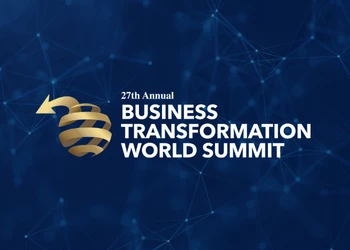Ignore at your own peril: Ensuring Operational Excellence is in tune with business objectives
Add bookmarkAhead of Operational Excellence in Financial Services in New York in March, PEX Network speaks to Russell Danziger, Senior Vice President, Global Change Management Office, Guy Carpenter about the importance of aligning operational excellence with strategy, and the possible consequences of neglecting this vital task.
Craig Sharp: The title of your presentation is: where the rubber means the road, linking strategy to operations. Explain to me a little bit about why that’s the topic you’ve chosen to present on. What’s the background?
Russell Danziger: I’ve just seen a lot of these programmes that have been de-railed because they don’t start with a high-level strategy. Where they don’t have the right people involved in the strategy discussion. It’s not so much about executing your strategy, unless you’re a pretty senior person in the organisation who’s actually setting the strategy, but you really need to be in tune with what the strategy is, and be able to synthesize that down to something that actually could be operationalised to deliver against that strategy.
Craig Sharp: Yes, so one of the key points seems to be ensuring alignment between business strategies and business-transformation initiatives. How do you feel companies currently fare at this? Is this something that’s often overlooked or perhaps not executed properly?
Russell Danziger: Both. It really just depends on the organisation. Aligning operations to strategy is very different than aligning operational excellence to strategy. I mean, they both should be done, they’re both starting from the same place – which is: know what your strategy is, in a pretty deep way, and understand how everything, impacts that.
The advice that I’ve heard frequency given depresses the heck out of me, because people will say thing like, "Oh well, you know your area and you know, where the problems are, so why don’t you figure out where you could be impactful and change things in your area." And I find that very frustrating because I’ve been working with executives for years.
I used to run the global programme at Merrill Lynch, and when I came there, they were a highly successful programme. They were so successful that they didn’t realise where the deficiencies were, and when I went around, working with the executives – (because I was a bit of an evangelist) I had to do some sales and get people to want to do operational excellence.
The main problem with the alignment was that executives in areas that actually were doing operational excellence would sit in on project reviews, and the thing that kept going around and around in their head – and I had many conversations with people about this – was: this great work, and they clearly impacted a change, but it’s not anything that I really care about; this isn’t what keeps me up at night, this isn’t what my bonus is going to be based on.
You know, they’d never say it to the person in the room, you know, because the person’s doing fantastic work, but they just, frankly, didn’t care all that much about what they were being presented on.
Craig Sharp: They’re doing fantastic work, but in the wrong areas. Based on what you’re saying, the key is tying it very closely with company objectives, and also with executive objectives as well, by the sounds of it?
Russell Danziger: That’s exactly right. And part of the blame for this goes to executives, I would constantly tell them, this is all very nice but remember: people are on your staff, or certainly on your company’s payroll, they’re doing work for your area, that’s why you’re in this project review. Shame on you if you have all these resources doing things that don’t impact things you care about. You need to redirect them; you need to make sure that these guys are working on the things that you actually care about. So it goes both ways.
Craig Sharp: Another element to your presentation will be how to secure and maintain executive sponsorship or buy-in, and, again, I guess that’s by intrinsically linking your programme to their objectives and the things that keep them up at night?
Russell Danziger: Exactly. You know, you have to take the strategy, you have to break it down into bite-sized pieces, and then, you know, your black belts who could further dissect it. Whether you’re talking about a black belt or a green belt, it’s got to be delivering the things that these people care about. If you are, and that tie-in is very obvious to them then great.
You know, if you think that you’re doing things that are going to impact your strategy and they don’t, you’ve got a very different problem you need to solve. But if they’ve articulated the strategy and you work with them and you come up with a portfolio of projects that are aligned with the core strategy, make sure your ships are all sailing in the same direction and they’re going to be very interested in your project, and you’re not going to have to chase them to for support or feedback, they’re going to be chasing you. You go from a push scenario to a pull scenario.
Craig Sharp: You’ve mentioned black belts and green belts, is Six Sigma your preferred PEX methodology?
Russell Danziger: No, I’m just using it metaphorically; I came up through a Six Sigma programme, so it’s firmly engrained within me when I discuss levels and seniority. When I was talking about Merrill and how they were, six years into a programme and didn’t recognise their own deficiencies, the biggest challenge I found with them was that they were six years into a Six Sigma programme, and every single challenge or opportunity that came along was treated as a statistical process improvement opportunity. That’s not always the case. No, I’m very much a multi-methodology person. When I hire people, I want multi-disciplined people, that understand the best way to approach the problem and the best tools to tackle it.
Craig Sharp: Russ, thank you so much. One final question, tips would you provide to those who’re currently struggling with their process excellence programs?
Russell Danziger: A programme could be derailed in many ways, if you’re trying to get a programme back on track; first thing to do is to understand the root causes.
It could be that you aren’t aligned to the strategy, that’s a lot more common than you might think. It could be that your talent isn’t the right talent. I’ve seem many programmes where a portion of the practitioners are just not up to task. I’ve seen other projects where there are training issues. The most common issue as I said though is you’re not aligned with executive strategy, and that requires a lot of work to mend.
[eventPDF]























